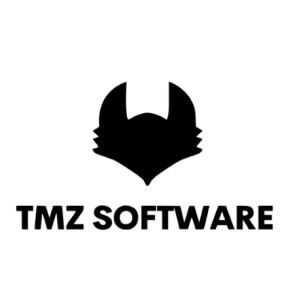
Average project size
$10,000 to $25,000Average hourly rate
$25 - $49Takes only 2 mins, 100% free






Small Businesses 50%
Mid-Sized Businesses 25%
Large Enterprises 25%
Logistics 20%
Healthcare 20%
Food Delivery 20%
Financial Services 20%
ECommerce 20%
konstantinfo.comhomepage
Delivery App
Startups 25%
Small Businesses 25%
Mid-Sized Businesses 25%
Large Enterprises 25%
Real Estate 20%
Food Delivery 20%
Financial Services 20%
Enterprise 30%
Agriculture 10%
weetechsolution.comhomepage
e-Secure
Done IT
Suitable Riders
Suitable Eats
Happy Wedding App
Public sentiment suggests that clients view WeeTech Solution as forward-looking and technically capable, trusting them to work in newer technologies, including blockchain. However, because blockchain is less visible in their documented case studies compared to their web/mobile work, confidence tends to be based on the reputation of their overall technical stack rather than deep-proven blockchain outcomes.
Intellection Software & Technologies Pvt. Ltd. is best suited for organizations that want to blend innovation with reliability across diverse technology domains. The company caters to startups, SMEs, and enterprises that seek end-to-end digital transformation whether through intelligent automation, scalable web systems, or secure decentralized solutions.
For businesses in eCommerce, Intellection is a strong partner for developing robust online platforms integrated with real-time analytics, AI-driven personalization, and efficient payment and logistics workflows. Their eCommerce projects often focus on improving customer experience through data insights and intelligent product recommendations.
In software and API development, Intellection is best for companies that require reliable backend systems, seamless integrations, and cross-platform connectivity. Their API expertise ensures interoperability across mobile, web, and enterprise systems, helping clients unify complex digital ecosystems without compromising security or performance.
For AI and Blockchain-driven solutions, Intellection stands out as an innovation partner. They are ideal for clients exploring predictive analytics, process automation, chatbots, smart contracts, and secure digital ledgers. These technologies are implemented not as isolated features but as part of integrated, data-rich systems that create long-term business value.
The company also serves as a capable partner in game development, especially for projects that require interactive storytelling, learning-based gamification, or AI-assisted design elements. Their approach combines technical precision with creativity, making them a suitable fit for educational, corporate, and entertainment-driven game projects.
Startups 5%
Small Businesses 25%
NGOs/Non-Profit 40%
Mid-Sized Businesses 30%
Media 25%
Healthcare 25%
Entertainment 15%
ECommerce 25%
B2B 10%
intellection.in homepage
Excellence by Intellection
Small Businesses 20%
Mid-Sized Businesses 30%
Large Enterprises 20%
Government 30%
Marketing 20%
ERP 20%
Education 20%
ECommerce 20%
B2B 20%
mycloudpulse.com homepage
U r M y T y p e - Datting App
N mahi OTT Platform
G o M a r t - Grocery App Development
MJSA E- Governance Project
GLAMPALM Ecommerce Platform
Mid-Sized Businesses 25%
Large Enterprises 25%
Startups 30%
Small Businesses 20%
Legal 20%
Insurance 20%
Healthcare 20%
Financial Services 20%
Education 20%
radixweb.comhomepage
Radixweb is trusted globally for its ability to deliver versatile, high-impact technology solutions that bridge innovation with business goals. What distinguishes the company is its holistic approach to digital transformation, combining design, development, and deployment with precision and scalability.
Their teams work closely with clients to understand both the functional and emotional aspects of digital experiences, ensuring every project delivers measurable business value.
The company’s strength lies in its cross-domain expertise, covering mobile, web, e-commerce, virtual reality, AI, and blockchain technologies. This diversity allows the company to build integrated ecosystems rather than isolated solutions, enabling clients to stay ahead in a fast-evolving digital landscape. Their emphasis on transparency, agile collaboration, and adaptive scaling ensures each project is handled with efficiency and care.
Radixweb’s design-first philosophy ensures intuitive user experiences, while their engineering depth guarantees high performance and reliability. From immersive VR solutions to secure API frameworks and AI-driven business tools, the company maintains a consistent standard of innovation and quality.
Moreover, clients value their proactive communication, quick turnaround times, and readiness to adopt new technologies, making Radixweb a long-term partner for sustainable digital growth.
Radixweb partnered with a European retail brand to build a unified online storefront integrating AI-driven recommendations and a responsive web interface. The solution increased online engagement by 40% and conversion rates by 25%. The client highlighted Radixweb’s design expertise, responsiveness, and clear communication throughout the project.
Startups 10%
Small Businesses 30%
Mid-Sized Businesses 30%
Large Enterprises 10%
Government 20%
Manufacturing 10%
Healthcare 10%
Food Delivery 10%
Financial Services 10%
Enterprise 10%
appinventiv.com homepage
Travel 20%
Startup 10%
News 10%
Financial Services 10%
Banking 50%
tmz-software.com homepage
Startups 20%
Small Businesses 20%
NGOs/Non-Profit 20%
Mid-Sized Businesses 20%
Large Enterprises 20%
Travel 10%
Sports 10%
Smart TV 10%
Real Estate 10%
Logistics 10%
www.vrinsofts.comhomepage
Startups 20%
Small Businesses 25%
NGOs/Non-Profit 20%
Large Enterprises 20%
Government 15%
Marketing 20%
Gambling 20%
ECommerce 20%
Business Intelligence 20%
B2B 20%
somasocial.comhomepage
SOMA SOCIAL SRL stands out for its technical depth and commitment to building practical blockchain solutions that solve real-world business problems. The firm’s developers possess strong experience in Ethereum, Hyperledger, and private blockchain frameworks, ensuring adaptability across industries such as fintech, logistics, and supply chain. Clients value their transparent communication and consultative approach, which ensures that each project is both technically sound and strategically aligned. Their ability to translate complex blockchain concepts into functional solutions gives them a competitive edge in a rapidly evolving market.
A European fintech startup collaborated with SOMA SOCIAL SRL to develop a blockchain-based payment verification system aimed at reducing fraud and improving transaction traceability. SOMA’s team delivered a scalable MVP within three months, allowing the client to secure investor interest and expand its operations. Post-deployment feedback highlighted the project’s reliability and the firm’s efficient communication throughout the process.
Marketing 20%
Logistics 20%
Enterprise 20%
ECommerce 20%
B2B 20%
sigmasolve.com homepage
Startup 50%
Healthcare 10%
Gaming 10%
Custom 15%
B2B 15%
www.proxima.si homepage
Healthcare 20%
Food Delivery 20%
Financial Services 20%
ERP 20%
ECommerce 20%
makewaystech.comhomepage
Startup 11%
Financial Services 14%
Enterprise 17%
ECommerce 50%
devionx.com homepage
Warehousing & Distribution 4%
Utilities 4%
Travel 4%
Transportation 4%
Startup 4%
solead.softwarehomepage
Financial Services 25%
Banking 75%
anxtechnologies.comhomepage
Startup 20%
Manufacturing 20%
Healthcare 20%
Business Intelligence 20%
Banking 20%
ozrit.comhomepage
Marketing 20%
ERP 20%
Enterprise 20%
ECommerce 20%
B2B 20%
www.eitbiz.comhomepage
Telecommunications 20%
Startup 20%
Real Estate 20%
Healthcare 20%
Financial Services 20%
artezio.comhomepage
Manufacturing 20%
Logistics 20%
Healthcare 20%
Gaming 20%
Food Delivery 20%
www.kpis.inhomepage
Hiring them for these services gives access to a team that understands how to merge modern design, backend logic, immersive technologies and AI/Blockchain-driven enhancements into cohesive digital products. Their breadth of skills means clients can scale their digital ecosystem without juggling multiple vendors. Their Jaipur base adds the advantage of competitive development pricing, while their adaptability makes them suitable for startups, SMEs and businesses exploring next-generation tech.
Travel 40%
Smart TV 10%
Manufacturing 25%
Entertainment 5%
Energy & Natural Resources 20%
nerds.shhomepage
teonite.com homepage
Post a project for free and quickly meet qualified providers. Use our data and on-demand experts to pick the right one for free. Hire them and take your business to the next level.